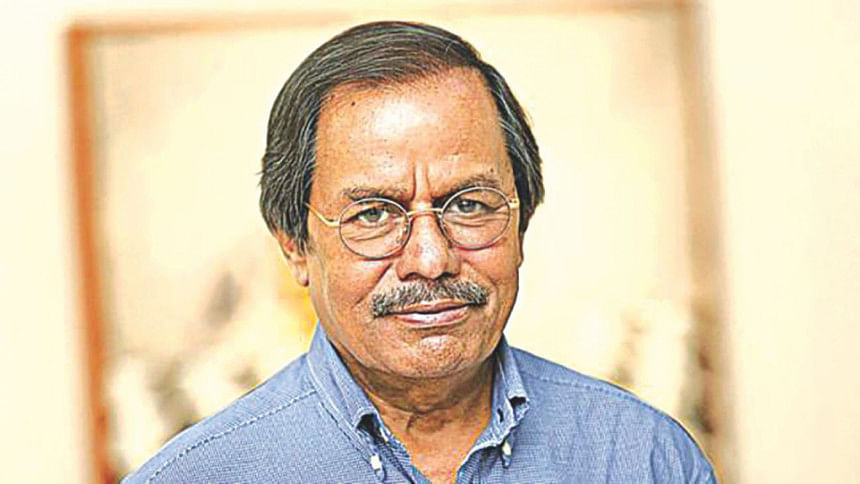Budget should initiate more investment in human resources

What is your reaction to the government allocating about 2 percent of GDP to the education sector in the upcoming national budget?
I understand the government has resource constraints. But this is one area that brings maximum returns on investment. When investment return is guaranteed to come through for generations, the philosophy of seeing this is an excellent investment should have prevailed.
Educationists have been demanding for 6 percent of GDP to be allocated to the sector. After Bangladesh signed the Dakar Declaration so many years ago, essentially saying that it would increase allocation to 6 percent of GDP, the fact that it has been hovering around 2 percent for so long is extremely disappointing. Either investment in the sector should be 25 percent of total budgetary outlay, or 6 percent of GDP. This cannot be done in one year, but must be done in phases. However, we should have taken the first step and I was expecting to see that happen this year.
Why am I emphasising on this so much? Because human resource development is the most important investment for any nation today. Just look at Malaysia, Indonesia and so many others that have been doing well. If you look at the proposed health allocation in the budget, it is even lower this year. If you combine that with the allocation to the education sector, you can see that the government is missing the most important factors in developing and maintaining our human resources.
Lastly, because of the increasing demand for education, we will face incredible challenges when it comes to providing education for everyone in about 10-15 years. In that time, we will have, or come very close to having, 100 percent literacy in our country. When that happens, there will be huge challenges in meeting that demand, and even more so, with an allocation of a mere 2 percent of GDP.
From your long experience, how efficiently would you say is the allocated budget used when it comes to education?
The education sector soaks up all the money that is allocated to it. Throughout the years I have not seen too much money remain unused, unlike many other sectors. The main inefficiency, or insufficiency rather, has been in attracting good teachers. And I say that this is really a big problem.
Because the salary given to teachers is so low, you cannot attract good teachers. And the budget should reflect the importance of having good teachers, especially women, as they are more child-friendly and have the capacity to better understand their psychology. The prevailing idea that primary teachers don't deserve much money for their service is wrong and should change.
Our schools are more or less functioning well and are also using the funds given to them quite efficiently. One suggestion I would like to give to the government when it comes to the construction of schools is that the local community should be involved. And that is happening in some cases which is good to see.
What is your general opinion of the education portion of the budget and about the finance minister's comments regarding the education sector?
I welcome his suggestions for improvements through providing stipends, meals, etc. as that would lead to less students dropping out of schools. Providing school buses is also a must. I have seen students walk mile after mile to get to school, therefore, having school buses will definitely help. The government can also provide boats in haor areas to ensure that children are attending schools throughout the year, even during the monsoon season. What I would also like to emphasise on is the need for long-term strategy when it comes to the things that the finance minister mentioned, not only short-term ones.
However, despite what he has mentioned, I believe that more needs to be done. The government shouldn't only think about quantity but quality also. We have to get out of the small box that we have been stuck in for years when it comes to thinking about the education that we are giving to our children. We have to keep in mind that this sector is not like any other. Again, I take you back to the philosophy of realising how important investing in education is for any country. I cannot stress enough the importance of providing good salaries to attract good teachers starting from the primary to the university level.
All-round development in curriculum design is badly needed as our curriculums are not innovative enough right now, and education should be all about innovation and imagination. There is too much emphasis on examinations. Get rid of the examinations that students are having to sit for in Grade-V and Grade-VIII. There is no need for them. The only thing that they are doing is increasing pressure on households.
We need a system that will discourage such rote-learning, which I must say is also being encouraged on the other hand by coaching centres. Coaching centres are literally running parallel to our education institutions. Why should that be acceptable?
Teachers should teach what they have to in the classroom and let children play for the rest of the time. Children should be allowed to play more and spend time in nature. That is what ensures quality education. Practice of culture, which is being discouraged more and more nowadays, needs to be brought back. Schools should have different clubs like story-telling clubs or nature clubs or clubs that promote whatever children are interested in. Their inherent capacities should be nurtured, not sidelined.
One last thing I want to mention is that every school must have a library and a trained librarian. Students no longer read any books outside of their textbooks which too are only based on notes or are more like guidebooks. That is not good enough. Children should be encouraged to read. And for schools to provide the necessary facilities and environment to encourage reading, we must have greater willingness to invest in our human resources than what has been demonstrated in the proposed budget. Otherwise, we will not be able to overcome the current obsession of getting an education for the sole purposes of obtaining a certificate and getting a job.









Comments